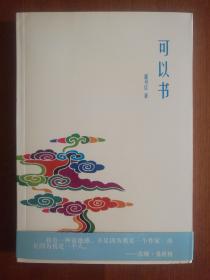
Ethics(现货,实拍书影)
Benedict de Spinoza: Ethics
¥ 95 九五品
仅1件
作者Benedict de Spinoza (author); Edwin Curley (translator); Stuart Hampshire (introduction)
出版社Penguin Classics
ISBN9780140435719
出版时间1984
印刷时间2005
装帧平装
尺寸19.8 × 13 cm
页数208页
货号t3
上书时间2021-01-18
- 在售商品 暂无
- 平均发货时间 13小时
- 好评率 暂无
- 最新上架
商品详情
- 品相描述:九五品
-
外表轻微磕碰磨损,全新书未曾使用(见书影)。
3@t3
- 商品描述
-
Published shortly after his death, the Ethics is undoubtedly Spinoza's greatest work, an elegant, fully cohesive cosmology derived from first principles, providing a coherent picture of reality, and a guide to the meaning of an ethical life. Following a logical step by step format, it defines in turn the nature of God, the mind, the emotions, human bondage to the emotions, and the power of understanding, moving from a consideration of the eternal, to speculate upon humanity's place in the natural order, the nature of freedom and the path to attainable happiness. A powerful work of elegant simplicity, the Ethics is a brilliantly insightful consideration of the possibility of redemption through intense thought and philosophical reflection. The Ethics is presented in the standard translation of the work by Edwin Curley. This edition also includes an introduction by Stuart Hampshire, outlining Spinoza's philosophy and placing it in context.
Benedict de Spinoza was born in Amsterdam in 1632, where his orthodox Jewish family had fled from persecution in Portugal. Spinoza was expelled from the synagogue for his heterodox philosophy, and earned his living as an optical lens grinder. He identified God with nature and denied the possibility of an act of creation. Ethics was published in 1677 after his death and explored a doctrine which inspired the Romantic poets.
Edwin Curley is Professor of Philosophy at the University of Michigan and editor and translator of Spinoza's Collected Works.
Stuart Hampshire was elected a Fellow of All Souls in 1936 and was a tutor in philosophy. He has held numerous presitigious academic posts.
相关推荐
-

Practical Ethics(实拍书影,国内现货)
九品上海
¥ 485.00
-

Aristotle's Nicomachean Ethics(进口原版,现货,实拍书影)
九五品上海
¥ 185.00
-

The Two Fundamental Problems of Ethics(现货,实拍书影)
九五品上海
¥ 99.00
-

实拍正版!BIOMEDICAL ETHICS opposing viewpoints
九品北京
¥ 120.00
-

Spinoza's Religion: A New Reading of the Ethics(现货,实拍书影)
九五品上海
¥ 298.00
-

读鲁迅书 现货实拍
九品嘉兴
¥ 18.00
-

千年智慧书 实拍现货
九品嘉兴
¥ 5.00
-

A Spinoza Reader: The Ethics and Other Works(进口原版,现货,实拍书影)
九五品上海
¥ 229.00
-

中国书的历史 现货实拍
八五品北京
¥ 3.00
-

中国书的历史 现货实拍
八五品北京
¥ 3.00
— 没有更多了 —
























以下为对购买帮助不大的评价